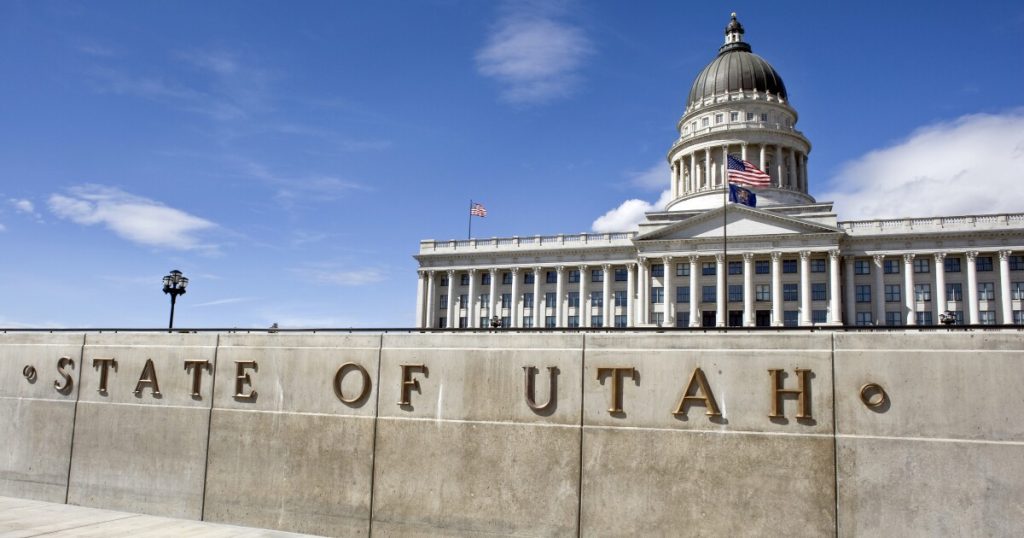Adobe Stock
Utah is poised to be the sixth state to enact a law that specifically regulates earned wage access providers. It awaits Republican Governor Spencer Cox’s signature.
Utah’s move comes as more
If the Utah bill becomes law, EWA providers will be required to register each year with the Utah Department of Commerce’s Division of Consumer Protection. Providers would also be required to offer at least one no-cost option, transparent fee disclosures and the ability for users to cancel the service at any time without penalties.
Specifically, fees are defined as any charge the provider imposes for the service, expedited delivery of funds or a subscription or membership that includes EWA services.
Tips, gratuity and donations are not included in the legislation’s definition of a fee, but must be “clearly and conspicuously” marked as voluntary.
In addition, disclosures must include:
- the anticipated timeline the consumer will receive the requested funds;
- the amount of funds the consumer has requested;
- the amount of the fee charged;
- the amount of funds the consumer will receive;
- the account that will receive the funds; and
- the date the provider is authorized to withdraw funds from the consumer’s account, including fees and voluntary payments; and
- before initiating an advance, require the customer to acknowledge receiving the opportunity to view all disclosures … and any costs and fees.
The American Fintech Council today sent a letter to Governor Cox urging him to sign the bill.
“This bill provides a strong foundation for the responsible growth of EWA in Utah,” Ashley Urisman, director of state government affairs at AFC, said in a statement. “By setting clear rules and oversight mechanisms, Utah lawmakers have demonstrated a deep understanding of financial technology and how it can benefit workers across the state.
“The state is once again proving itself to be a hub for fintech leadership, prioritizing consumer protection while ensuring workers continue to have access to financial tools that help them manage their cash flow effectively,” she said. “AFC applauds the Utah legislature for their leadership on this issue and encourages Governor Cox to sign HB 279 into law.”
Employer-integrated EWA provider
“The Utah legislature, with leadership from bill sponsors Representative Cory Maloy and Senator Chris Wilson, have put forward an exemplary and thoughtful measure that protects consumers and supports the growth of businesses in the Earned Wage Access industry, codifying regulations for a service that thousands of Utahns depend on to meet their financial needs,” said Ryan Naples, vice president of public policy at DailyPay. “We particularly applaud the unanimous, bipartisan passage of this bill, and encourage Governor Cox to sign it swiftly.”
At least 26 states are pursuing EWA legislation, Phil Goldfeder, CEO of the American Fintech Council, previously told American Banker. Colorado, Connecticut, Georgia, Indiana, New Mexico, New York, Oregon, Vermont and Washington have active legislation on the books.
By embracing a pro-EWA posture, Utah could lure more fintechs that offer EWA and other financial products. The state in recent years has become a hotbed for
“I think this is in large part because of four key factors: regulations, tax laws, venture capital and talent,” he said. “Utah is just one of seven states that offers an ILC charter [and] became the third state to establish a fintech regulatory sandbox.”
For example, universities in Utah are establishing foundational cross-discipline fintech degrees, and the government has an established technology advisory board that is aimed to craft legislation from the bottom up rather than the top down, Moran said.
“The Utah governor’s fintech advisory council, which includes founders, executives, venture capital firms, public education leaders, state university leaders and others, has made it a priority to make Utah the innovation hub for fintechs,” Moran said.
“Utah is not San Francisco and is not New York, but, in all honesty, it has no aspirations to be so either,” Moran said. “Instead, it’s positioned itself to become to the fintech sector what Delaware has become for corporate law.”

